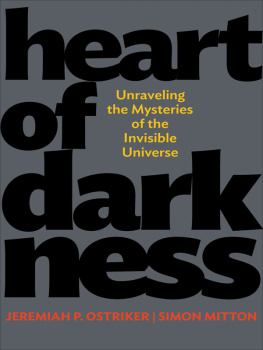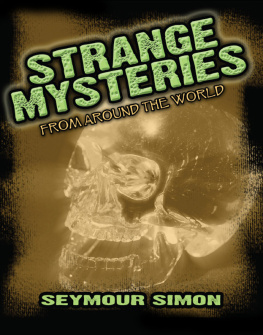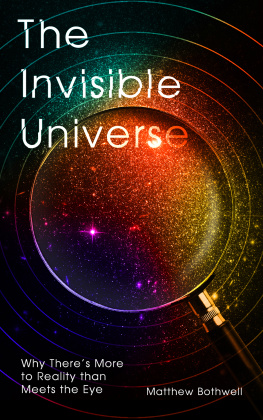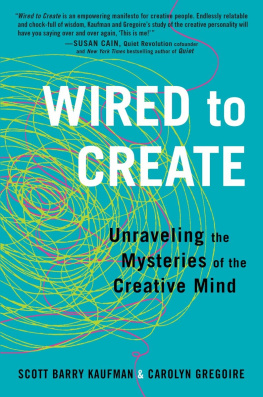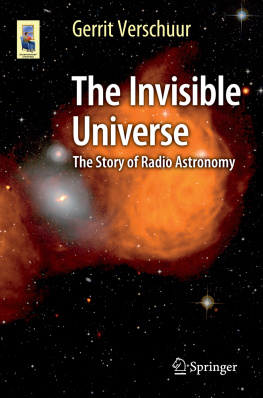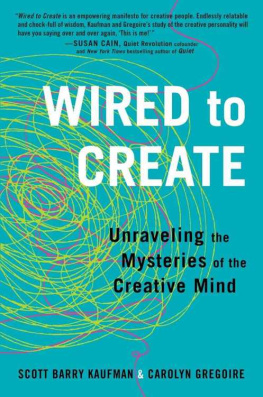Mitton Simon - Heart of Darkness: Unraveling the Mysteries of the Invisible Universe
Here you can read online Mitton Simon - Heart of Darkness: Unraveling the Mysteries of the Invisible Universe full text of the book (entire story) in english for free. Download pdf and epub, get meaning, cover and reviews about this ebook. City: Princeton University Press, year: 2012, publisher: Princeton University Press, genre: Science fiction. Description of the work, (preface) as well as reviews are available. Best literature library LitArk.com created for fans of good reading and offers a wide selection of genres:
Romance novel
Science fiction
Adventure
Detective
Science
History
Home and family
Prose
Art
Politics
Computer
Non-fiction
Religion
Business
Children
Humor
Choose a favorite category and find really read worthwhile books. Enjoy immersion in the world of imagination, feel the emotions of the characters or learn something new for yourself, make an fascinating discovery.
- Book:Heart of Darkness: Unraveling the Mysteries of the Invisible Universe
- Author:
- Publisher:Princeton University Press
- Genre:
- Year:2012
- City:Princeton University Press
- Rating:4 / 5
- Favourites:Add to favourites
- Your mark:
- 80
- 1
- 2
- 3
- 4
- 5
Heart of Darkness: Unraveling the Mysteries of the Invisible Universe: summary, description and annotation
We offer to read an annotation, description, summary or preface (depends on what the author of the book "Heart of Darkness: Unraveling the Mysteries of the Invisible Universe" wrote himself). If you haven't found the necessary information about the book — write in the comments, we will try to find it.
Mitton Simon: author's other books
Who wrote Heart of Darkness: Unraveling the Mysteries of the Invisible Universe? Find out the surname, the name of the author of the book and a list of all author's works by series.
Heart of Darkness: Unraveling the Mysteries of the Invisible Universe — read online for free the complete book (whole text) full work
Below is the text of the book, divided by pages. System saving the place of the last page read, allows you to conveniently read the book "Heart of Darkness: Unraveling the Mysteries of the Invisible Universe" online for free, without having to search again every time where you left off. Put a bookmark, and you can go to the page where you finished reading at any time.
Font size:
Interval:
Bookmark:

Heart of Darkness
Books in the Science Essentials series bring cutting-edge science to a general audience. The series provides the foundation for a better understanding of the scientific and technical advances changing our world. In each volume, a prominent scientistchosen by an advisory board of National Academy of Sciences membersconveys in clear prose the fundamental knowledge underlying a rapidly evolving field of scientific endeavor.
The Great Brain Debate: Nature or Nurture, by John Dowling
Memory: The Key to Consciousness, by Richard F. Thompson and Stephen Madigan
The Faces of Terrorism: Social and Psychological Dimensions, by Neil J. Smelser
The Mystery of the Missing Antimatter, by Helen R. Quinn and Yossi Nir
The Long Thaw: How Humans Are Changing the Next 100,000 Years of Earths Climate, by David Archer
The Medea Hypothesis: Is Life on Earth Ultimately Self-Destructive? by Peter Ward
How to Find a Habitable Planet, by James Kasting
The Little Book of String Theory, by Steven S. Gubser
Enhancing Evolution: The Ethical Case for Making Better People, by John Harris
Natures Compass: The Mystery of Animal Navigation, by James L. Gould and Carol Grant Gould
Heart of Darkness: Unraveling the Mysteries of the Invisible Universe, by Jeremiah P. Ostriker and Simon Mitton
Heart of Darkness
Unraveling the Mysteries of the Invisible Universe
Jeremiah P. Ostriker and Simon Mitton
PRINCETON UNIVERSITY PRESS
Princeton and Oxford
Copyright 2013 by Jeremiah P. Ostriker and Simon Mitton
Requests for permission to reproduce material from this work should be sent to Permissions, Princeton University Press
Published by Princeton University Press, 41 William Street, Princeton, New Jersey 08540 In the United Kingdom: Princeton University Press, 6 Oxford Street, Woodstock, Oxfordshire OX20 1TW
press.princeton.edu
All Rights Reserved
ISBN 978-0-691-13430-7
Library of Congress Control Number: 2012 950892
British Library Cataloging-in-Publication Data is available
This book has been composed in Minion with Ideal Sans
Printed on acid-free paper
Printed in the United States of America
10 9 8 7 6 5 4 3 2 1
Sample statement (TK)
Contents
The unfolding story of modern cosmology, as it appears in the popular press, is often a simple linear parade of heroes whose achievements are presented as inevitable outcomes: Copernicus, Galileo, the Herschels, Einstein, Eddington, Hubble, Sandage, and then the Modern Paradigm. In fact, it is a more winding tale, with these leaders, in addition to their great contributions, having made serious errors and other players making essential contributions. The two authors, having been participants over roughly the last half century of this enterprise, and knowing rather closely a large fraction of the cast of characters, have wanted to add extra emphasis to some of the physicists and astrophysicists whose vital contributions have often been overlooked in the conventional story line. Specific examples are the Abb Georges Lematre, George Gamow, Fritz Zwicky, and Beatrice Tinsley. Numerous other living scientists have also been noted, but we have surely not been fair to the contributions of innumerable eminent scientists whose work has not even been mentioned, although their contributions to cosmology have been significant and sometimes critical. We did not set out to write a scholarly and comprehensive history of modern cosmology. Our weak apology is based on the necessity of choices to be made given the limitations of space in a book that only has attempted to present highlights of the tale, and those topics selectively picked from the large number of equally valuable strands that we might have emphasized. So, to our numerous colleagues whose contributions have been slighted or omitted, we offer our apologies; we know of and value your contributions, but rather arbitrarily chose to pick a small number of no longer present co-explorers whose work has been passed over too quickly in the standard accounts.
Both of us are, at the most fundamental level, hugely indebted to our numerous colleagues, in Princeton, in Cambridge, and throughout the world. Science is a cooperative, global enterprise and, of all modern sciences, astrophysics has perhaps the densest and richest branches of international interconnections. Thus any listing of those who have assisted and informed us will be painfully incomplete. Nevertheless, however partial and inadequate our remarks, certain individuals contributed so critically to our work that they must be acknowledged individually. At Princeton, Paul Steinhardt, Jim Peebles, and Jim Gunn have provided extraordinarily helpful historical background and scientific insight. They were, themselves, central players in this great enterprise and we are enormously indebted to them for their assistance in correcting errors, pointing out gaps, and generally providing wisdom. In Cambridge, Martin Rees and Donald Lynden-Bell have been, over our careers, steady fonts of insight and directional guides.
In the writing of this work Ostriker gratefully acknowledges the editorial assistance of his wife, the poet and essayist Alicia Ostriker, and his old friend, the editor Robert Strassler, as well as his editor from Princeton University Press, Ingrid Gnerlich. All three read draft after draft of the manuscript, providing innumerable vital suggestions, regarding both organization and verbal felicity. However strong or weak the final product, their generous and thoughtful assistance was essential in helping to transform the overly technical, literarily incoherent initial effort into its ultimate form.
Simon Mitton expresses his deep appreciation to his Cambridge colleague Michael Hoskin, the distinguished historian of astronomy and biographer of the Herschel family, with whom he has enjoyed a close friendship for forty-five years. Hardly a day passes without Michael giving Simon avuncular advice on how to be a plausible academic. Likewise Simon thanks Owen Gingerich, historian of astronomy at the other Cambridge, for much encouragement and guidance, given selflessly and warmly over several decades. Simons wife Jacqueline Mitton, who is also a Princeton author, contributed many valuable suggestions on the development of the manuscript. He warmly acknowledges the research facilities support of the Master and Fellows of St Edmunds College, Cambridge, where he has appreciated the good advice of Michael Robson, Lee Macdonald, Bruce Elsmore, and Rodney Holder. It is also a great pleasure and privilege to thank his agent Sara Menguc and her colleagues for their support.
 Cosmology Becomes Data-driven Science
Cosmology Becomes Data-driven ScienceCosmology, our study of the nature, formation, and evolution of the universe, has been transformed in an extraordinary fashion since the two authors of this book were students in the 1960s. When we were doctoral students at Chicago (JPO) and Cambridge (SM), two powerful but competing models were in the air: the big bang and the steady state models of the universe. There were passionate advocates for each, and a scientists views of the subject were considered to be a matter of belief. On almost a daily basis we were exposed to the strong opinions and arguments of the great minds that were battling to understand the universe. At any gathering of professional astronomers one might be asked, Do you believe in the steady state theory? or What do you make of this big bang universe? Popular writings about cosmologythen and to this dayreflect that early, almost theological, intellectual atmosphere. Cosmology rested precariously on a series of beliefs, because data and hard facts were so scarce.
Next pageFont size:
Interval:
Bookmark:
Similar books «Heart of Darkness: Unraveling the Mysteries of the Invisible Universe»
Look at similar books to Heart of Darkness: Unraveling the Mysteries of the Invisible Universe. We have selected literature similar in name and meaning in the hope of providing readers with more options to find new, interesting, not yet read works.
Discussion, reviews of the book Heart of Darkness: Unraveling the Mysteries of the Invisible Universe and just readers' own opinions. Leave your comments, write what you think about the work, its meaning or the main characters. Specify what exactly you liked and what you didn't like, and why you think so.

